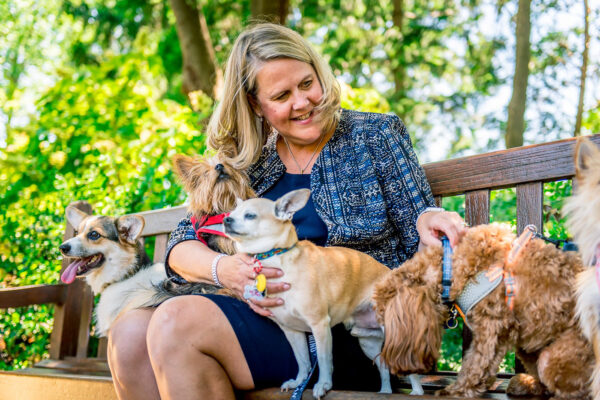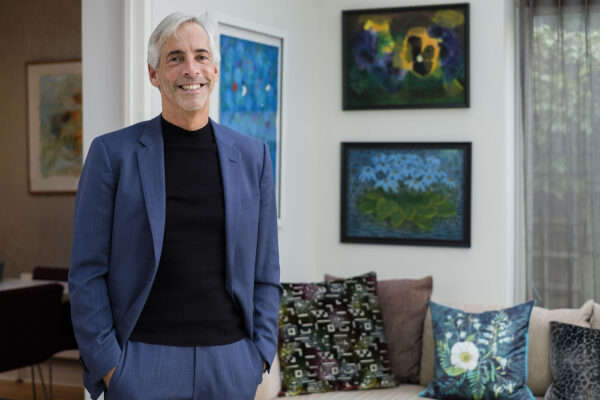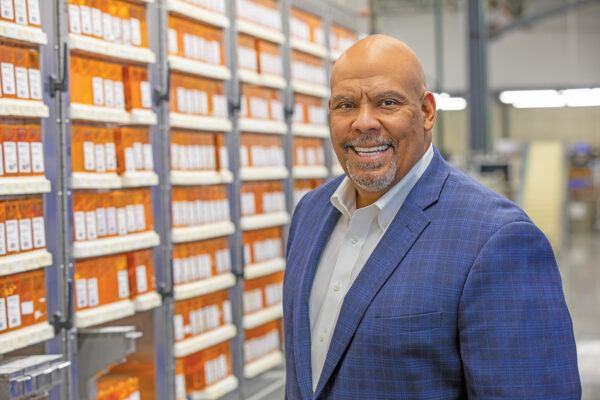In August 2021, in the midst of retirement, Freida Brown, AB ’70, returned to Nairobi, Kenya, to serve as interim vice chancellor at United States International University-Africa (USIU-Africa).
Brown had been the vice chancellor (the university’s highest position) from 1994 until her retirement in 2016. She is now filling in while the university conducts an international search for its next vice chancellor.
“It’s been a wonderful opportunity for me to come back, to see the growth of the university,” Brown says.
How did Brown end up the first woman to lead a chartered university in Kenya? According to Brown, it wasn’t by design.
“Life is just interesting. You don’t know where you’ll wind up,” she says. “I used to tell students to take advantage of every opportunity, because you never know what skill you’ll acquire and how you’ll use it.”
Life for Brown began in Hopkinsville, Kentucky, but her parents moved the family to St. Louis so that Brown and her siblings would have access to a better education.
“Living in a small town in Kentucky was very segregated,” Brown recalls. “It was like night and day going from ‘no coloreds allowed’ and segregated water fountains” to St. Louis.
Although St. Louis proved to be less segregated than her hometown, there was still much racial tension and harassment. But she nonetheless was able to focus on her studies and graduate from Laboure High School. She matriculated at WashU in 1966.
Brown was one of 12 Black incoming first-year students — the largest number of Black students the university had had since desegregating in 1952. The students inspired change on campus through organizations like the Association of Black Collegians (ABC), which Brown helped found. In 1968, ABC successfully advocated for a Black studies program, more Black professors, an end to police harassment and other changes on campus.
“That was the era of Black pride — ‘I’m black and I’m proud’ — and the Black Panthers. It was an exciting time, a tumultuous time,” Brown says.
Brown began her college career as a pre-med major but decided to switch to psychology while serving as a research assistant for Robert Williams, who was the founding director of the Black studies program. Williams encouraged her to continue her education and pursue graduate school.
After earning a bachelor’s degree in 1970, Brown went on to Michigan State for graduate school. While there, she discovered a new world.
“My first taste of Africa was working on my dissertation research in grad school, and I lived in Botswana for a year,” Brown says. “That hooked me into enjoying being outside of the U.S. and experiencing a totally different culture. That was during the time of apartheid in South Africa. Going in and out of South Africa was like stepping back into Kentucky in the 1950s.”
After graduate school, Brown taught at Howard University for a year. She then returned to WashU to work as associate director for Williams’ minority mental health program for two years.
“I marvel at people who have a planned life. Mine was happenstance. It was truly taking advantage of things that were offered at the time and being adventurous enough to say, ‘let’s go try this.’ ”
Freida Brown
A few additional career moves later, a colleague recommended she pursue an adjunct position at USIU-San Diego. The position led Brown to become the executive assistant to the president at the university, overseeing international campuses.
In 1994, when the then–vice chancellor retired, Brown was asked to take up the reins. Under her leadership, the school grew from 1,100 students to more than 6,200. The campus grew in size as well, from 20 to 160 acres along with major infrastructure expansion.
“I marvel at people who have a planned life. Mine was happenstance,” Brown says. “It was truly taking advantage of things that were offered at the time and being adventurous enough to say, ‘let’s go try this.’”
While leading the university, Brown had to face many obstacles. When she arrived, the campus had dirt roads, unreliable water and rolling blackouts. However, in Kenya, she felt a sense of belonging that she hadn’t felt before.
“I’m not saying there weren’t times when I thought I would pack up and go home. My mother would always say, ‘Remember why you’re there. You’re there for the students,’” Brown says.
It wouldn’t take long for Brown to see the fruit of her labor. Several of Brown’s former students are now sending their children to USIU-Africa and giving back to their hometowns and villages.
“My mom was right,” Brown says. “When you make a difference in people’s lives, at the time you don’t even think about it. You just think it was the right thing to do. To have so many people come back and tell me, ‘You made a difference in my life,’ fills me with joy.”


